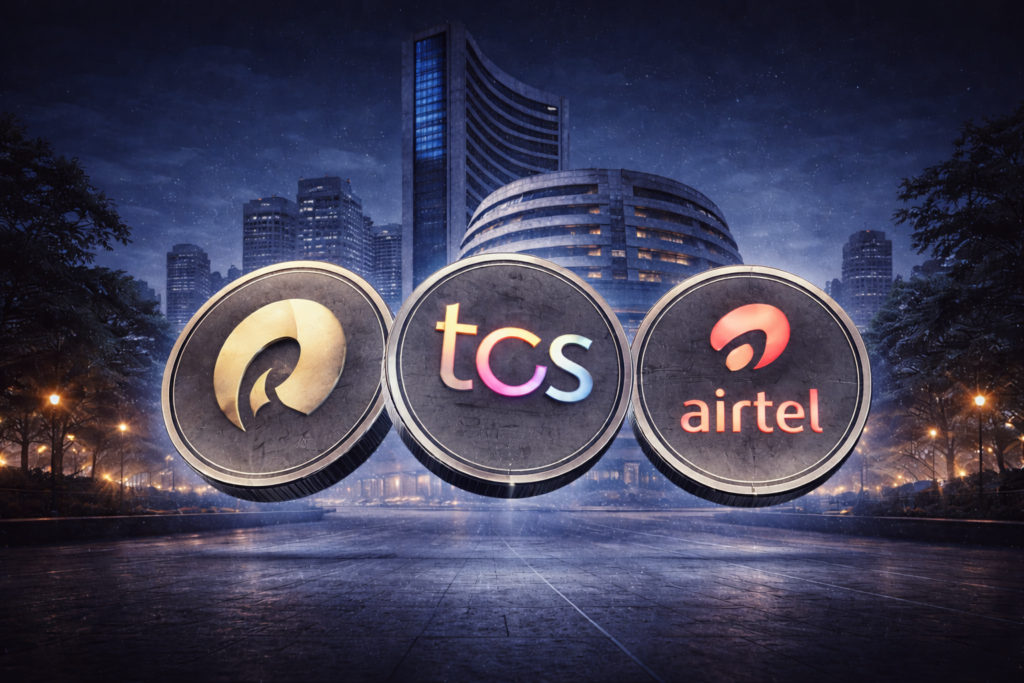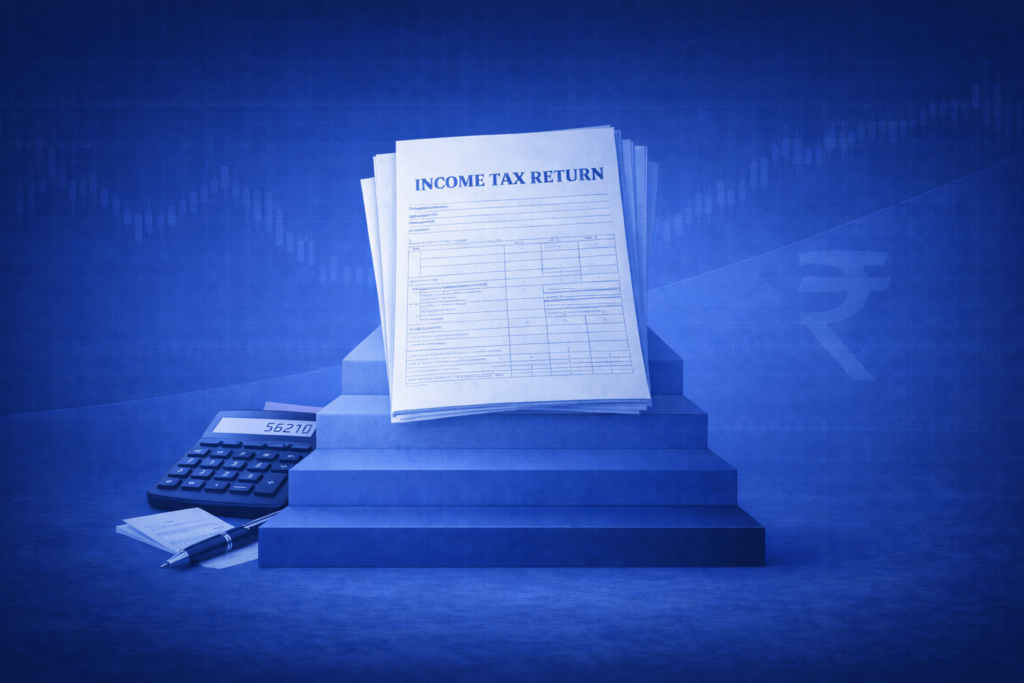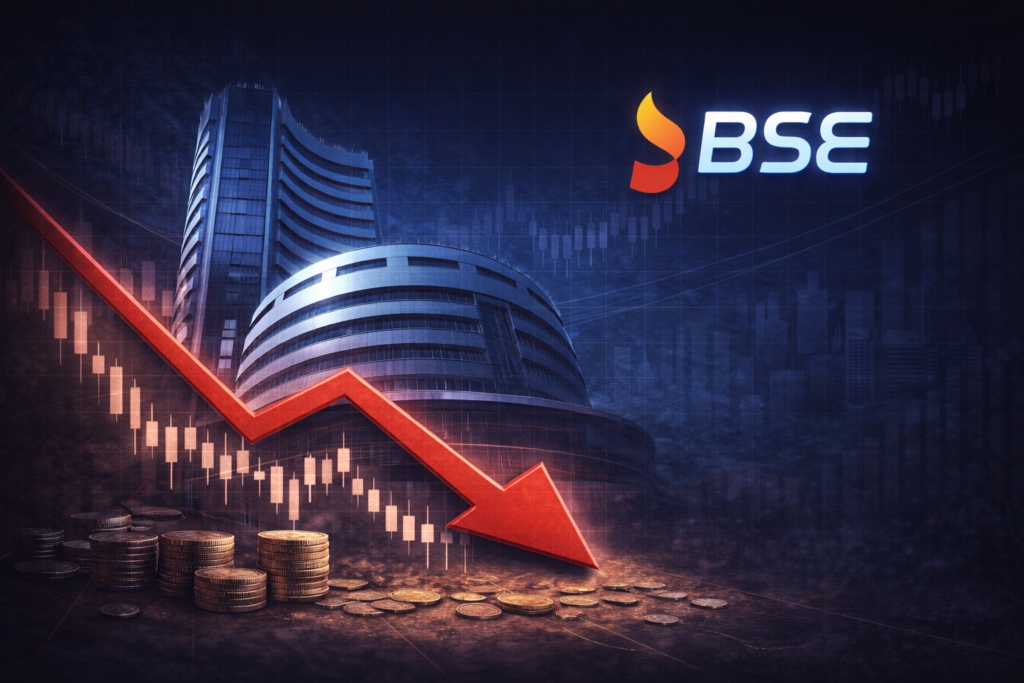When you sell an asset for a profit after holding it for a long period, you may be liable to pay long-term capital gains (LTCG) tax. The tax rate and exemptions depend on the type of asset, the holding period, and applicable tax laws. Understanding LTCG tax helps you make informed investment decisions, minimise tax liability, and plan your finances better.
This guide breaks down the essentials of LTCG tax, including tax rates, exemptions, and strategies to optimise your tax obligations. Whether you invest in stocks, mutual funds, or real estate, knowing how LTCG tax works can help you maximise your returns.
Understanding Long-Term Capital Gains (LTCG)
Long-term capital gain (LTCG) is the profit earned from selling a capital asset you have held for more than a specified period.
Key Factors Affecting Long-Term Capital Gains
Several factors influence how LTCG is calculated and taxed:
- Indexation Benefit: Adjusts the purchase price of assets for inflation, reducing taxable gains (applicable to non-equity assets).
- Capital Loss Set-Off: Long-term capital losses can be offset against long-term capital gains to lower tax liability.
- Tax Exemptions: Certain reinvestments (e.g., buying another house or specific bonds) qualify for exemptions under Sections 54, 54EC, and 54F.
- Surcharge and Cess: Additional charges apply for high-income earners, affecting net LTCG tax.
What is Long-Term Capital Gains Tax?
Long-Term Capital Gains (LTCG) Tax is the tax levied on profits from the sale of capital assets, such as real estate, stocks, and mutual funds, held for a specified period. The holding period for LTCG classification varies by asset type:
- Listed Equity Shares & Equity-Oriented Mutual Funds: More than 12 months
- Real Estate & Other Capital Assets: More than 24 months
Depending on the asset class and transaction date, LTCG is taxed at preferential rates, with or without indexation benefits.
What is the Long-Term Capital Gains Tax Rate?
The LTCG tax rate depends on the type of asset:
- Listed Equity Shares & Equity-Oriented Mutual Funds (Section 112A): 10% (on gains exceeding ₹1 lakh, without indexation)
- Real Estate, Debt Mutual Funds & Other Capital Assets: 20% (with indexation if sold before 23rd July 2024)
- Real Estate, Debt, Mutual Funds, & Other Capital Assets (sold on or after 23rd July 2024): 12.5% (without indexation)
Certain exemptions under Sections 54, 54EC, 54F, etc., can help reduce LTCG tax liability if the gains are reinvested in eligible assets.
Calculation of Long-Term Capital Gains Tax
Here is a step-by-step guide on how you can calculate taxes on your long-term capital gains:
- Determine the Full Value of Consideration: The total amount received from the capital asset’s sale, including monetary payment or fair market value in applicable cases.
- Deduct Expenses Related to the Transfer: Expenses like brokerage, commission, and legal fees are subtracted to arrive at the Net Sale Consideration.
- Calculate the Cost of Acquisition: If indexation is applicable (for transfers before 23rd July 2024), use the following formula:
- Indexed Cost of Acquisition = Purchase Price × (CII of Sale Year ÷ CII of Purchase Year.
- Deduct Exemptions Under Section 54/54B/54D/54EC/54F: If reinvestment is made in eligible assets like residential property or specified bonds, exemptions can reduce taxable LTCG.
- Calculate LTCG Chargeable to Tax:
- LTCG Taxable Amount = Net Sale Consideration – (Indexed Cost of Acquisition + Indexed Cost of Improvement) – Exemptions
- LTCG tax is 12.5% without indexation and 20% with indexation (if applicable).
Indexation Benefits for LTCG Calculation
Indexation adjusts the purchase price of an asset for inflation, reducing taxable capital gains. This benefit applies only to real estate and debt mutual funds sold before 23rd July 2024.
Formula:
Indexed Cost of Acquisition = Purchase Price × (CII of Sale Year ÷ CII of Purchase Year)
Example Calculation (With Indexation)
Rahul purchased a house in 2010 for ₹30,00,000 and sold it in May 2024 for ₹85,00,000. Given CII values:
- CII (2010-11) = 167
- CII (2024-25) = 363
| Particulars | Amount (₹) |
| Full Value of Consideration | 85,00,000 |
| Less: Indexed Cost of Acquisition (30,00,000 × 363 ÷ 167) | 65,27,485 |
| Long-Term Capital Gains (LTCG) | 19,72,515 |
| Less: Exemptions (if applicable) | NIL |
| LTCG Chargeable to Tax | 19,72,515 |
| Tax @ 20% | 3,94,503 |
Example Calculation (Without Indexation)
If Rahul sold the house in August 2024 (after 23rd July 2024), indexation wouldn’t apply.
| Particulars | Amount (₹) |
| Full Value of Consideration | 85,00,000 |
| Less: Cost of Acquisition | 30,00,000 |
| Long-Term Capital Gains (LTCG) | 55,00,000 |
| Less: Exemptions (if applicable) | NIL |
| LTCG Chargeable to Tax | 55,00,000 |
| Tax @ 12.5% | 6,87,500 |
Since the sale occurs after 23rd July 2024, LTCG is taxed 12.5% without indexation instead of 20% with indexation.
Key Investments Subject to LTCG Tax
Here is a brief detail on how your long-term gains are taxed on different investment instruments:
Stocks and Equity Funds
Long-term capital gains (LTCG) tax applies to profits from selling listed equity shares and equity mutual funds held for over 12 months.
- Tax rate: 12.5% on gains above ₹1.25 lakh, without indexation benefits.
- Unlisted shares: Gains are considered long-term only if held for at least 24 months.
- Equity-Linked Savings Schemes (ELSS): These tax-saving mutual funds have a 3-year lock-in and qualify for LTCG tax treatment upon redemption.
Real Estate and Property Investments
If you sell property held for more than 24 months, the LTCG tax is applicable.
- The tax rate is 20% with indexation or 12.5% without indexation, depending on the acquisition date.
- Tax-saving options: You can claim exemptions by reinvesting in another residential property under Section 54 or Section 54F.
For land and buildings sold after July 23, 2024, you can choose between 20% tax with indexation or 12.5% tax without indexation if the asset was acquired before July 22, 2024.
Mutual Funds and Debt Instruments
Mutual fund taxation depends on whether they are equity-oriented or debt-oriented:
- Equity mutual funds (investing at least 65% in equities) follow the same 12.5% LTCG tax rule as stocks.
- Debt mutual funds (investing mainly in fixed-income securities) are taxed 12.5% without indexation.
- Debt-oriented balanced funds (over 60% in debt instruments) also attract a 12.5% LTCG tax.
How to Minimise Long-Term Capital Gains Tax
Some ways to minimise your long-term capital gain taxes are:
Use Tax Exemptions Under Sections 54 and 54F
You can claim tax exemptions under Section 54 and Section 54F if you reinvest your capital gains in residential property.
- Section 54: If you sell a residential property and buy another one within the specified time, you can claim an exemption.
- Section 54F: If you sell any asset (except residential property) and use the proceeds to buy a house, you can avoid LTCG tax.
To qualify, you must purchase a new property within one year before or two years after the sale or construct one within three years.
Invest in Capital Gain Bonds for Exemptions
Instead of buying real estate, you can invest in 54EC bonds (issued by NHAI and REC) to claim LTCG tax exemption.
- The investment must be made within six months of selling the asset.
- The maximum investment limit is ₹50 lakh.
- These bonds have a 5-year lock-in period and are non-transferable.
This is a good option if you don’t want to reinvest in property but still want to reduce tax liability.
Plan Investments Strategically to Reduce LTCG Tax
- Hold investments longer: If possible, wait until your assets qualify as long-term capital assets to benefit from lower tax rates.
- Spread capital gains: If you expect a large capital gain, stagger the sale over multiple financial years to stay in a lower tax bracket.
- Offset gains with capital losses: If you have any capital losses from previous years, adjust them against LTCG to reduce your taxable income.
Differences Between Long-Term and Short-Term Capital Gains
The tax treatment of capital gains depends on how long you hold an asset before selling it.
| Criteria | Short-Term Capital Gains (STCG) | Long-Term Capital Gains (LTCG) |
| Holding Period (Equity & Mutual Funds) | Up to 12 months | More than 12 months |
| Holding Period (Real Estate, Gold, Other Assets) | Up to 24 months | More than 24 months |
| Tax Rate (Listed Shares & Equity Mutual Funds) | 15% | 10% (above ₹1 lakh, no indexation) |
| Tax Rate (Other Assets) | As per the income tax slab | 20% with indexation benefit |
Conclusion
Long-term capital gains tax plays a crucial role in investment planning. Knowing the applicable tax rates, using indexation benefits, and leveraging exemptions under Sections 54, 54EC, and 54F can significantly reduce your tax burden.
By structuring your investments wisely and aligning them with tax-efficient strategies, you can retain more profits while complying with tax laws. A well-informed approach to LTCG tax ensures that your wealth grows efficiently.
Frequently Asked Questions (FAQs)
What is the long-term capital gains tax rate in India?
India’s long-term capital gains (LTCG) tax rate is 12.5% on gains above ₹1.25 lakh for listed equity shares and equity mutual funds. For real estate and debt mutual funds, LTCG is taxed 12.5% without indexation or 20% with indexation if applicable.
How can I avoid paying LTCG tax on property sales?
You can avoid LTCG tax on property sales by reinvesting the proceeds in residential property (Section 54) or using the amount to buy capital gain bonds (Section 54EC) within the specified time frame.
What is the difference between LTCG and STCG?
LTCG and STCG (short-term capital gains) differ in the holding period and tax rates. LTCG applies when assets are held for more than 12 months (stocks, equity mutual funds) or 24 months (real estate, unlisted shares, debt mutual funds), while STCG applies to shorter holding periods and is taxed at higher rates.
Are mutual funds subject to long-term capital gains tax?
Yes, mutual funds are subject to LTCG tax. Equity mutual funds are taxed 12.5% on gains exceeding ₹1.25 lakh, while debt mutual funds are taxed 12.5% without indexation.
How does indexation benefit reduce LTCG tax?
Indexation benefit reduces LTCG tax by adjusting the purchase price for inflation using the Cost Inflation Index (CII), which lowers taxable gains. This benefit is available for real estate and debt mutual funds but not for equity assets.
Disclaimer: Investments in securities markets are subject to market risks. Read all the related documents carefully before investing. The securities quoted are exemplary and are not recommendatory.























